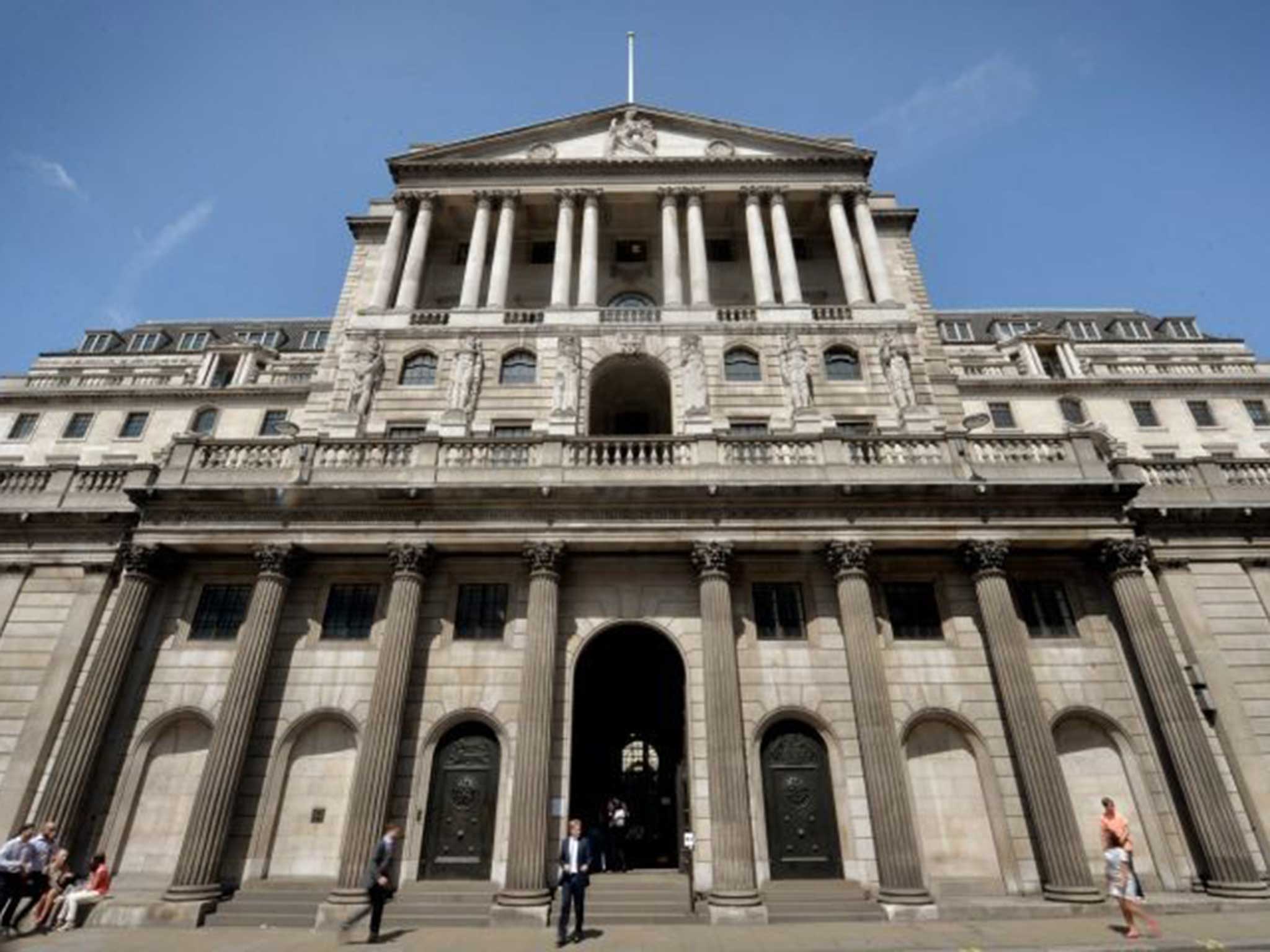Bank of England's EU exit strategy leaked to national newspaper – by its head of press
Bank of England desribed the leak as 'unfortunate'

Your support helps us to tell the story
From reproductive rights to climate change to Big Tech, The Independent is on the ground when the story is developing. Whether it's investigating the financials of Elon Musk's pro-Trump PAC or producing our latest documentary, 'The A Word', which shines a light on the American women fighting for reproductive rights, we know how important it is to parse out the facts from the messaging.
At such a critical moment in US history, we need reporters on the ground. Your donation allows us to keep sending journalists to speak to both sides of the story.
The Independent is trusted by Americans across the entire political spectrum. And unlike many other quality news outlets, we choose not to lock Americans out of our reporting and analysis with paywalls. We believe quality journalism should be available to everyone, paid for by those who can afford it.
Your support makes all the difference.A senior official at the Bank of England “inadvertently” sent research assessing the economic dangers of the UK leaving the European Union to an editor at a national newspaper.
The Bank was left in an embarrassing situation on Friday after it accidentally emailed details – including how to fend off inquiries related to the report – directly to the Guardian newspaper.
A Bank spokesperson said that the error was “unfortunate”.
The leaked documents reveal a small number of senior staff are examining the economic effects should the UK leave the EU, according to the email detailed by the Guardian.
The report, dubbed Project Bookend, was so confidential that staff working in head office in Threadneedle Street were to be kept in the dark – with inquiries fended off by explaining the taskforce concerns "a broad range of European economic issues" and making no reference to the forthcoming referendum.
Prime Minister David Cameron has promised an in/out referendum on the UK’s EU membership by the end of 2017.
It is an embarrassing leak for Bank governor Mark Carney, who had promised greater transparency and overhauled the central Bank’s operations.
The email appears to show that Sir Jon Cunliffe, deputy Governor of the Bank for Financial Stability, was putting together a small senior taskforce to assess the consequences of a exit.
It was inadvertently forwarded by the bank’s head of press after Sir Jon’s private secretary sent the email on 21 May to four senior executives explaining the taskforce, believed to also involve James Talbot, the head of the monetary assessment and strategy division.
“Jon’s proposal, which he has asked me to highlight to you,” the email explains, “is that no email is sent to James’s team or more broadly around the Bank about the project.”
It continues: “James can tell his team that he is working on a short-term project on European economics in International [division] which will last a couple of months. This will be in-depth work on a broad range of European economic issues. Ideally he would then say no more.”
Yesterday the Bank released a statement regarding the leak.
“It should not come as a surprise that the Bank is undertaking such work about a stated government policy,” the statement claims.
It adds: “It is not sensible to talk about this work publicly, in advance. But as with work done prior to the Scottish referendum, we will disclose the details of such work at the appropriate time.
“While it is unfortunate that this information has entered the public domain in this way, the Bank will maintain this approach.”
Join our commenting forum
Join thought-provoking conversations, follow other Independent readers and see their replies
Comments